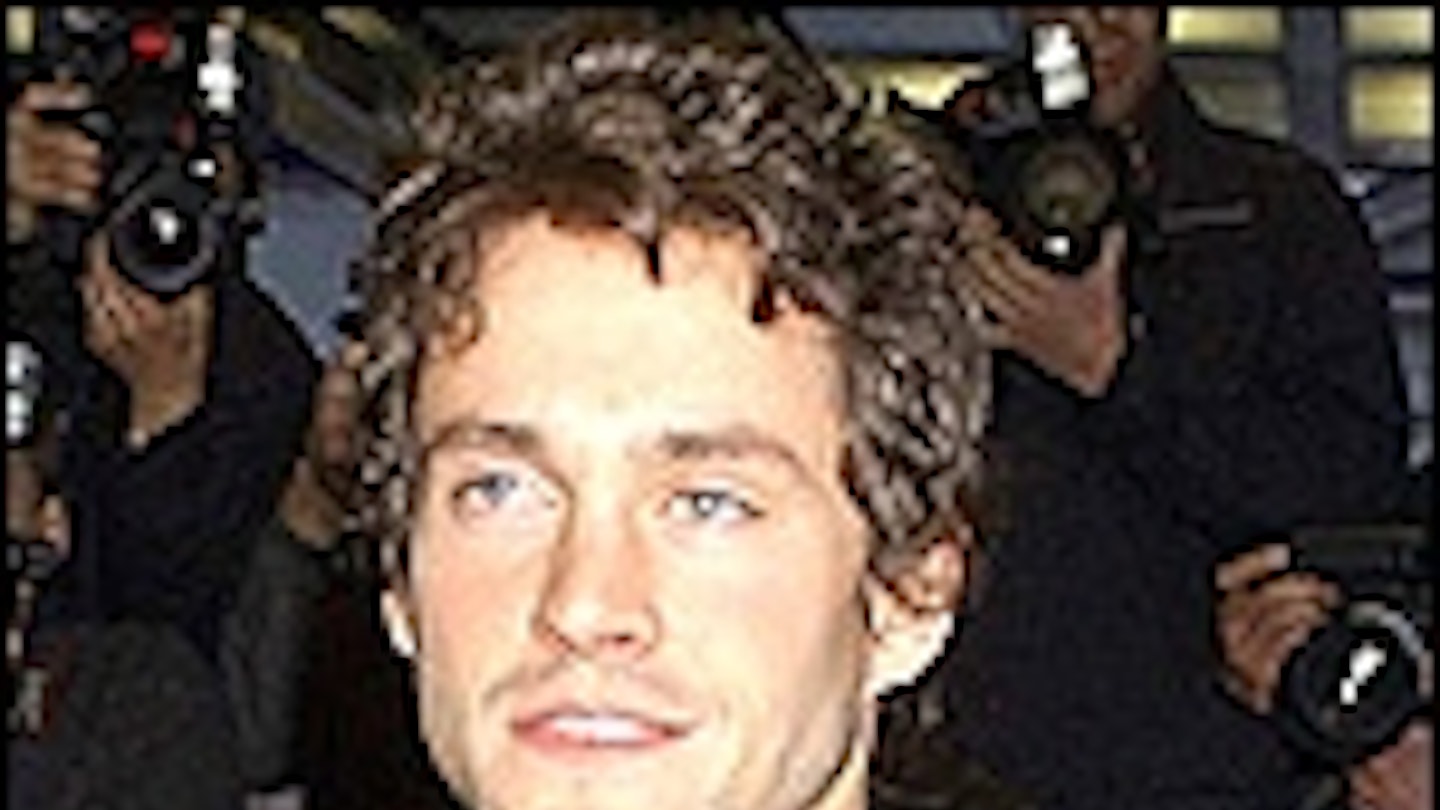It seems only a matter of minutes since Empire was last staring lovingly down at Hugh Dancy at the London Film Festival screening of the Rwandan genocide drama Shooting Dogs, but so much has changed.
Since then it’s gone from a film with a 'worthy' label, to one with rave reviews. Those same reviews have attracted the Rwandan ambassador and the pop-campaigner Annie Lennox to the Curzon cinema in Mayfair tonight for the film's UK premiere. Most significantly of all, Monday saw its official world premiere in Kigali, Rwanda’s capital. Many people in the audience had been involved in the genocide that haunted the country a decade ago, so it was clearly important to the actors and crew that it was well received.
“Amazingly, all the responses were kind of bigger,” said Hugh Dancy, who along with director Michael Caton-Jones and co-stars John Hurt and Claire-Hope Ashitey, flew out to Rwanda for the screening. “There was a lot more laughter as well, there aren’t a lot of laughs in the movie, but when they came the Rwandans – even the ones who couldn’t speak English – got it. Then at other moments I could hear people weeping. There was a very palpable silence at other times, and other people were crying out. But the real response came afterwards – total silence and then this wave of people wanting to talk about it, to share their emotions.”
Well, that surely answers the pre-release mutterings about letting the Rwandans get on with forgetting the events of ten years ago.
“That’s the last thing they want,” said John Hurt decisively. “Don’t forget that we were there at the beck and call of the Rwandan people, they wanted the film made and we wanted to make it.” Perhaps unsurprisingly, Hurt found the film touched him more than his previous work. “(Making a film) can’t go forward until you’ve discovered the truth and the horror of it,” he said. “These are not just some people who escaped the genocide, anybody who is under 10 years old escaped the genocide. 800,000 out of 8 million in a hundred days, it’s a colossal amount of people and you find it very hard to understand. I still find it hard even having gone through it, to understand what the complications are now.”
Step up director Michael Caton Jones, last seen premiering the similarly harrowing – albeit for entirely different reasons – Basic Instinct 2. Seeing as he said money was the reason for filming that one, what gave him his motivation this time? “Self interest,” he explains. “I wanted to do something for myself that meant I could get away from Hollywood studios, something I could get passionate about.” Surprisingly for a time where passion projects rule, he knew nothing about Rwanda before going to shoot the film: “I thought, ‘Well, if I don’t know, I’m pretty sure a lot of people don’t know and if I can just make something that shines a light on what happened in Rwanda then people can educate themselves’.”
Seventeen-year-old newcomer Claire-Hope Ashitey, who plays a young refugee, said that the subject matter made her feel more politically responsible: “It’s had a profound effect on my outlook and the way I think about things, my awareness of certain situations. Now I’m much more open, if you hear a little snip on TV about genocide, Sudan, Darfour, suddenly you want to know a lot more about it because you realise that in ignoring that bit of the news now, we’re doing the same thing that we did in ’94.”
The fact that a film about the Rwandan genocide focuses on two white men has been much debated, but as Ashitey explains, it’s part of bringing the facts to a white-dominated Western audience. “In order to connect to Western audiences, for them to get more of an insight and truly know what happened, you need characters that they can relate to,” she said. “Unfortunately if we have a completely Rwandan film and its language, it’s going to be really hard for people to connect and think ‘That could have been me’. It’ll have a much more profound effect on people emotionally by adding two white main characters.”
Dancy agrees: "To say ‘Well, this is a black story, what have whites got to do with it,’ you reiterating the logic of the people who chose not to get involved in 1994. I hope that one day Rwandans will make these movies – I believe they will from the people I’ve spoken to – but right now this movie is being made for people here and my character serves as a conduit for their response."
Shooting Dogs follows in the subject matter footsteps of Hotel Rwanda, which got Don Cheadle an Oscar nomination – and John Hurt is politely miffed that his film has yet to get similar attention. “Hotel Rwanda looked at a different thing altogether and the subject will take any number of films, any number of different ways at looking at it,” he said. What I will say is that Michael Caton made an incredibly good film and because he didn’t stamp himself all over it because he didn’t think that was right for the subject matter, I don’t think he’s quite had the notices he should have had.”
With the reviews the film’s been getting, that dry spell could well be about to change.
